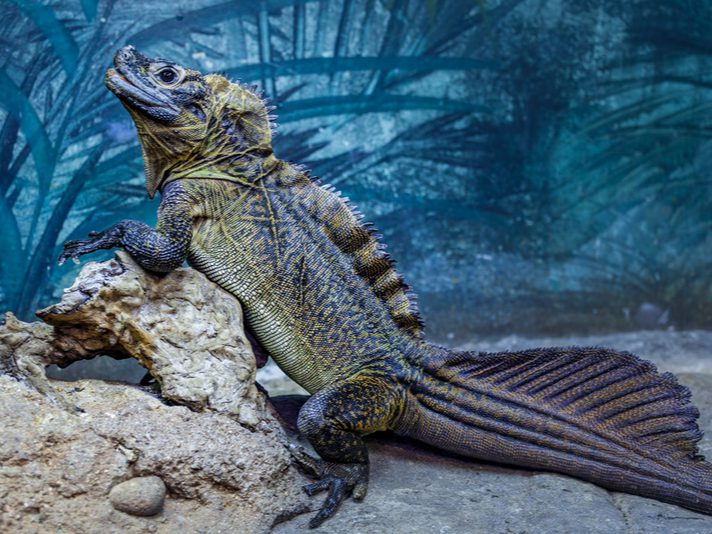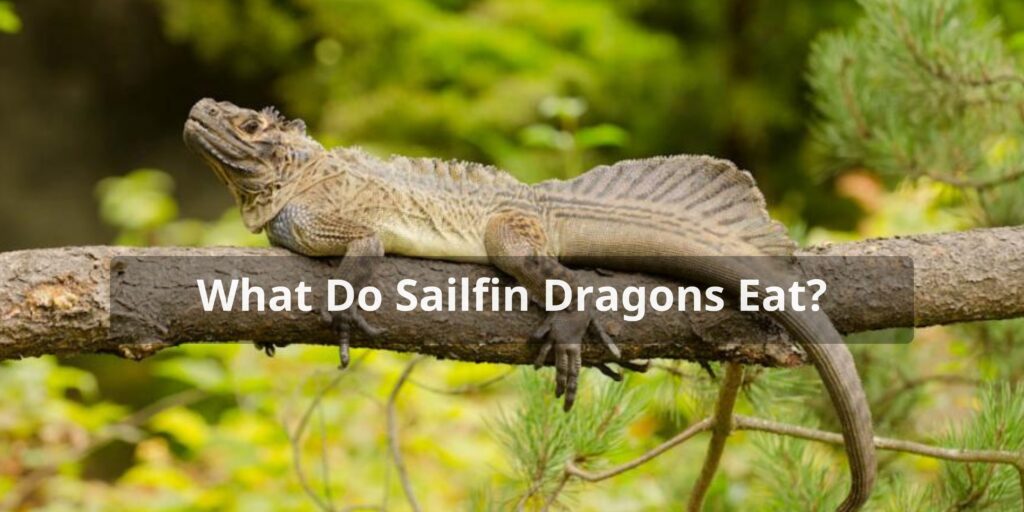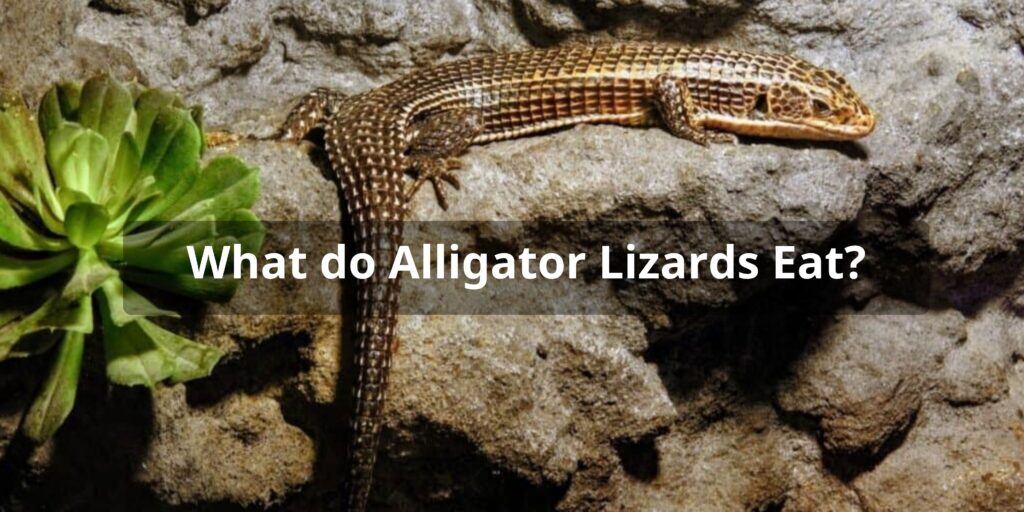Sailfin dragons are fascinating lizards known for their unique appearance and behavior. These creatures come from the tropical forests and rock outcroppings of Southeast Asia, where they spend most of their time basking in the sun and hunting for food. If you’re a new sailfin dragon owner or just curious about what these lizards eat, keep reading to learn all about their diet in the wild and as pets.
Sailfin Dragon Diet Basics
Sailfin dragons are omnivores, meaning they eat both plant and animal matter. However, the ratio of insects to plant food changes as they grow. As juveniles, sailfin dragons need more protein than adults and should be fed live insects like crickets, mealworms, and dubia roaches. Adults can be fed a more balanced diet of insects, vegetables, and fruits in a 60:40 ratio. Younger sailfin dragons should be fed 2-3 times daily, while adults can eat every other day.
Essential Foods for Sailfin Dragon Diet
To maintain their health and wellbeing, sailfin dragons require specific types of food. Here are some of the essential foods you should include in your sailfin dragon’s diet:
Preferred Live Food Options
Sailfin dragons prefer live food options such as crickets, dubia roaches, mealworms, and super worms. These insects are high in protein and other nutrients that are essential for their growth and development. Waxworms and hornworms are also great treats, but should be fed in moderation due to their high fat content.
Safe Vegetables for Regular Intake
Sailfin dragons require a variety of vegetables for a healthy diet. Some safe options include collard greens, mustard greens, turnip greens, dandelion greens, kale, sweet potato, squash, and carrots. Vegetables should be washed thoroughly and chopped into small pieces to make them easier for the lizards to eat.
Recommended Fruits for Sailfin Dragon Diet
In addition to vegetables, sailfin dragons also enjoy fruits as part of their diet. Some safe options include mango, papaya, blueberries, raspberries, strawberries, and figs. Fruits should be chopped into small pieces and offered in moderation due to their high sugar content.
Essential Vitamins & Minerals
Sailfin dragons require certain vitamins and minerals to maintain their health. Calcium is an essential nutrient that helps strengthen their bones and prevent metabolic bone disease. You can provide calcium supplements by dusting their live food with calcium powder or offering cuttlebone. Vitamin D3 is also important for calcium absorption and can be provided through natural sunlight or UVB lighting.
Foods to Avoid for Sailfin Dragon
While sailfin dragons have a diverse diet, there are some foods you should avoid feeding them. Insects such as fireflies, lightning bugs, and ladybugs are toxic to sailfin dragons and can cause serious health problems. Additionally, vegetables like spinach and rhubarb contain oxalic acid, which can interfere with calcium absorption and lead to metabolic bone disease. Fruits like grapes and avocados are high in fat and can cause digestive issues if fed in excess.
Feeding Guidelines for Sailfin Dragon Owners

Feeding your sailfin dragon can be a fun and rewarding experience, but it’s important to follow some practical guidelines to ensure they stay healthy. Here are some tips and rules to keep in mind:
- Offer live food at least twice a week to adult sailfin dragons and daily to juveniles.
- Dust live food with calcium powder before feeding to ensure proper calcium intake.
- Provide fresh water daily in a shallow bowl.
- Offer a variety of vegetables and fruits to prevent boredom and ensure a balanced diet.
- Avoid overfeeding and obesity by offering portioned meals and limiting treats.
Understanding Sailfin Dragon Hydration Needs
In addition to food, sailfin dragons require proper hydration to stay healthy. These lizards prefer to drink water droplets off their environment, so misting their enclosure twice daily or providing a dripper system can help them stay hydrated. You can also offer shallow water bowls for soaking and provide high humidity levels to support healthy shedding.
Conclusion
In summary, sailfin dragons require a balanced diet of live insects, vegetables, and fruits to maintain their health and wellbeing. Feeding guidelines should be followed to prevent overfeeding and nutritional deficiencies, and some foods should be avoided due to toxicity or nutrient interference. By understanding the dietary needs of your sailfin dragon, you can provide them with a long and healthy life.
FAQs About Sailfin Dragon Diet
Can I feed my Sailfin Dragon only insects?
While insects are essential, a varied diet is crucial. Sailfin Dragons benefit from a balanced diet that includes insects, vegetables, and occasional fruits. Providing diverse food sources ensures they receive proper nutrition.
How often should I feed my pet sailfin dragon?
Feed Sailfin Dragons every 2-3 days. Young dragons may require more frequent meals. Adjust based on their age, size, and activity level. Consistent feeding and observing their health maintain their well-being.
Do sailfin dragons eat fruits and vegetables?
Yes, they can consume small amounts of fruits and vegetables. Offer finely chopped options like berries and leafy greens occasionally. However, insects and vegetables should be the main components of their diet for proper nutrition.
Is it okay to give sailfin dragons small rodents?
While primarily herbivores, sailfin dragons might occasionally consume small rodents. However, small rodents should not dominate their diet. Focus on offering insects, vegetables, and occasional fruits to meet their nutritional needs.
What types of insects are suitable for them?
Suitable insects include crickets, mealworms, silkworms, and roaches. These insects provide protein and mental stimulation. A variety of insect types offers a well-rounded diet for optimal health.
Can Sailfin Dragons eat worms?
Yes, small worms like mealworms and silkworms can be included in their diet. However, worms should not be the sole food source. Mixing them with a variety of insects and vegetables ensures balanced nutrition.
Should I provide calcium supplements?
Yes, provide calcium supplements. Dust insects and vegetables with calcium powder before feeding to support their bone health. Consult a reptile veterinarian for guidance on supplementing to prevent calcium deficiencies.
Can I offer my sailfin dragon baby food?
Occasionally, you can offer unsweetened and organic baby food as a treat. Opt for varieties with fruit or vegetable bases. However, this should complement their main diet of insects and vegetables, not replace it.



